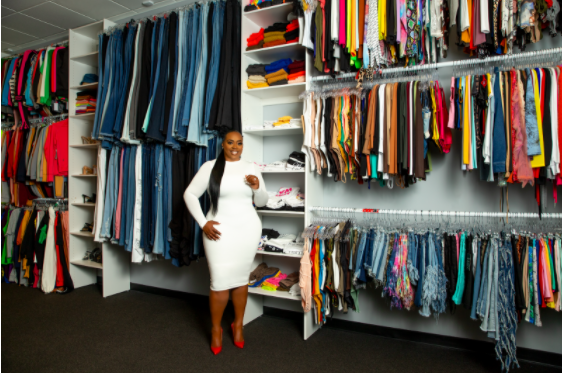The past decade has marked the age of influencers. Especially in light of social distancing regulations during the COVID-19 pandemic, influencers have found ample opportunity to engage with their followers through the general public’s increased usage of social media.
This shouldn’t come as a surprise to anyone. After all, people turned to social media platforms as a way to quash their boredom in the past year. What’s more interesting to note here is that social media wasn’t just someplace people flocked towards to keep their minds occupied. It also provided a platform for influencers who recognized business opportunities hidden between trends and memes.
A study conducted in 2020 showed that, compared to 2019, collaborations between influencers had 57% more reach to social network users. There was a marked increase of 130% in sponsorship activity on TikTok. Research also showed that this growth in influencer marketing can be primarily accredited to Generation Z.
But with this huge influx of influencers on social media platforms like YouTube, Instagram, Facebook and the recently-trending TikTok, it’s hard for any influencer to distinguish themselves from the crowd.
Gitta Banko, a well-known fashion influencer on Instagram, said this about influencers in the fashion industry: “In our industry, being authentic must be at the core of all we do. Some influencers unfortunately often accept collaborations even though they don’t really reflect what they stand for.”
Authentic vs Plastic, and What Brands Look Out For These Days
The key thing brands often pay heed to in the influencer industry is the well-known epidemic termed ‘influencer fraud’. In essence, influencer fraud consists of fake influencers who are either bots created to garner a profitable following online, or actual people who buy their followers instead of organically appealing to their audiences.
Influencer fraud does nothing to benefit brands. Of course, to whom would a fake influencer sell a brand’s products if their followers are all fake?
Authenticity in influencer marketing has also recently become a rising trend. These days, it’s easy for an influencer to get caught up in the rush of garnering more profit. Some advertise products for the sake of doing their job, so to speak. But more and more people are getting sick of ‘plastic’ influencers who very obviously advocate for products that they don’t really believe in.
“I don’t look at engagement on social media as a task or something that I have to do. I try to engage first; I like so much of my growth to ‘show you care’. I always try to care a little bit more than everyone else does on social,” claimed Brian Fanzo, a keynote speaker who works closely with big names like Dell, IBM, and Hewlett-Packard Enterprise in an interview with Traackr.
The first thing an influencer should do to show they’re authentic is to, basically, show they actually care about what they’re selling.
Ebony Swank, the founder and owner of fashion brand Swank a Posh, is one example of someone who markets fashion according to her beliefs. She established this line for the purpose of “selling products that women would love and use time and time again”. Swank a Posh has built a community of over half a million through its social media presence. And part of the reason why they’ve succeeded in appealing to their clients is that they market fashion that’s relatable.
“When collaborating with influencers, we don’t look for a certain image. We search for all kinds of girls of different sorts of sizes. We love that, because not only is it more relatable, but it’s also real and it shows that it’s okay to confidently be who you are,” Swank said.
Marketing Products that People Actually Care About

These days, it’s hard to differentiate between influencers who genuinely care about the products they endorse and influencers who are just in it for the money.
“Authenticity has become something that’s harder to derive from this digital space as we build more distance and roadblocks between ourselves and the people we’re actually trying to reach,” stated Brian Fanzo.
It’s important, therefore, for influencers to associate themselves with brands they care about. It can be as simple as loving the way a product functions during its everyday use, or as deeply profound as believing in what a company stands for. For instance, The Body Shop, a cosmetic brand widely known for its stand against animal cruelty and its efforts in promoting environmental protection, is extremely careful when associating itself with certain influencers.
“We have a very strict criteria when it comes to working with influencers to promote our brands or social causes,” claimed Charlotte Amouy Adjchavanich, The Body Shop’s Integrated International Brand Communications Director. “We always say it’s not just about another pretty face. It’s about finding someone who stands for something.”
Swank a Posh also stands as a fashion-based brand that strives to put meaning behind its clothing lines. It is owned 100% by a black woman with no silent partners or investors bolstering its current success. Besides appealing to women of color, Swank’s products are catered to suit the everyday lifestyle of various women in terms of functionality and style.
“We specialize in jeans constructed and catered to accentuate the curves of a black woman’s body,” Swank testified of her brand’s products.
“I use real customers as influencers,” Swank further said. This is something lots of brands – including The Body Shop – are currently doing. They use genuine reviews to promote their products and put real people up on their advertisements.
Looking at the direction brands are currently taking, it’s a clear siren call for influencers to change the direction they’re headed towards if they haven’t already done so. Out with the old ways of plastic mannequins – it’s time for real faces and real reactions for real customers to see.




